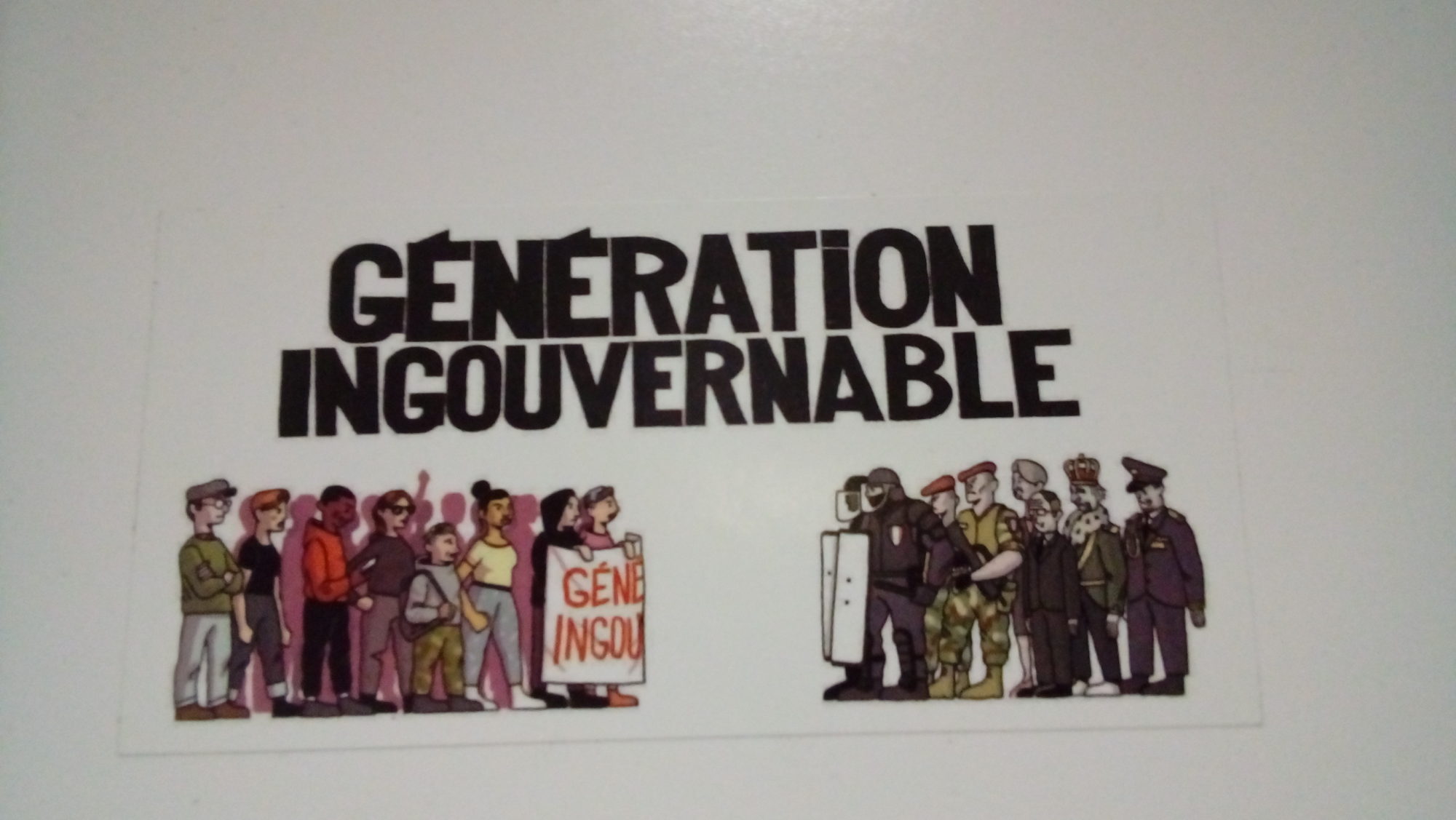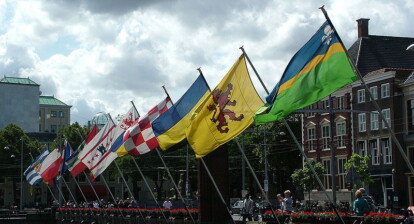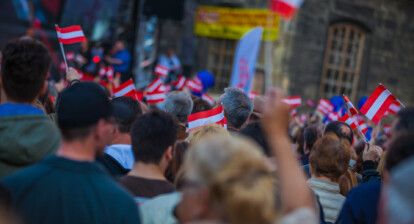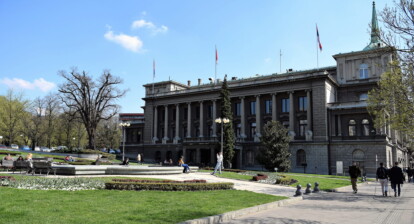Milan Vukašinović’s life is stretched between Belgrade and Paris for a PhD in Byzantine history. Read how his experiences from Serbia stamped his perspectives on the contradictory situation right before the run-off of the French elections.
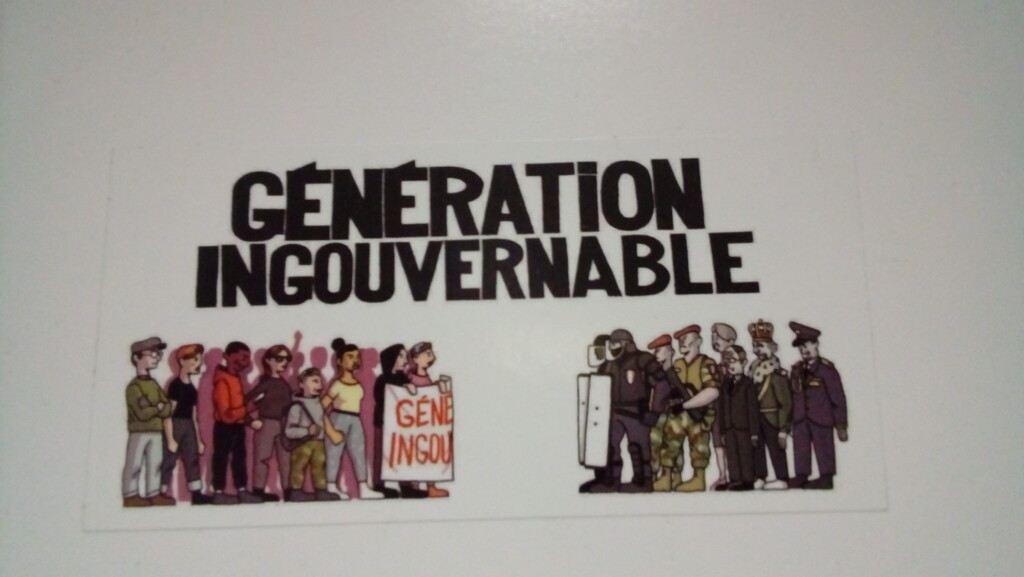
An ungovernable generation? (Photo: Milan Vukašinović)
After the first round of the presidential elections in France, despite of the expected results, the world of European politics seems to be turned upside down: Even though I could not vote, as a foreigner living in France and planning my future somewhere in Europe I will definitely be affected by the outcome. So, I followed closely. Comparing it with my experience from Serbia, I could spot some similarities.
Presenting the centrist populism as the only weapon against the advent of the extreme right could not but remind me of the 2012 Serbian elections that launched our ex-prime minster/current president Aleksandar Vučić and his degrading of the institutions supported by the EU. However, following a serious pre-electoral period in which all 11 candidates got the chance to present their programs on relatively equal grounds and even debate it on national TV – now that was a complete novelty for me. So, I had my eyes wide open, like a child on a first trip to the zoo. I think that might have allowed me to notice some things that escaped most of the French public, used to the democratic political practices.
Three Theses on the Situation
Since the 23rd of April, three interesting theses have been circulating through traditional and social media:
First, the voters have clearly stated that they are done with the traditional parties on the left/right axis and that the time of the alternative movements led by new faces has come.
Second, all democratic and republican forces are called upon to vote for Emanuel Macron and stop the advent of the perceived force of evil – Marine Le Pen’s Front National (FN).
Third, the voters of progressive orientation, and especially the young people among them, who are reticent to give their vote to neo-liberal Macron are treated as traitors of the Republic in advance. I, an outsider, would like to give my humble opinion on these three points.
New, old Faces?
Firstly, the new faces and the new movements are not that new: Marine Le Pen has been prominently and successfully active in politics on all levels, from local to European, for more than a decade, gradually transforming her father’s sectarian movement into a regular political party. Nonetheless, she likes maintaining the label of the outsider in order to appeal to the voters who feel neglected and excluded.
I believe that only when the other politicians stop treating her as a devil who has possessed a 21% of the electorate and start addressing her as what she is – an extremely ambitious political person – they can efficiently face the challenge she is presenting them with. Trying to address the problems of people who feel like outsiders might also stop them from fleeing to the flanks of Le Pen who, despite her deep rootedness in the system, keeps branding herself as one of them.
Macron’s Political Identity
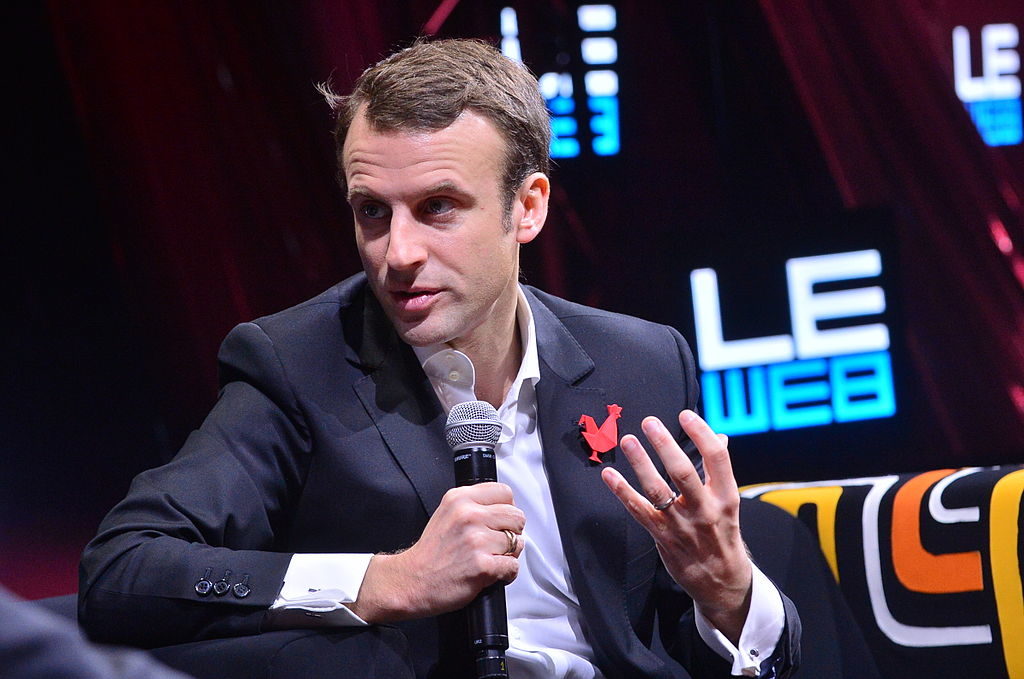
An old, new face: Macron as former minister. (Photo: OFFICIAL LEWEB PHOTOS – PULLMAN STAGE / CC BY 2.0)
On the other side, Emanuel Macron is branding himself as neither left nor right. From my point of view that is a euphemism for a well-known species of liberal-democrats at best, or a newer type of centrist populists at worst. He has been a part of François Hollande’s entourage since the beginning of his presidency. As economy minister, he introduced a controversial law but left the government before he could be held responsible for its consequences.
Moreover, his candidature was endorsed even before the first round by a great number of the right-leaning Socialist party members. He was even cryptically supported by the president himself. What might seem surprising is that when Hollande’s popularity has dropped to only 4%, Macron, as one of the tailors of his policies ended up in the first place on the election day. I tend to see this as a skillful consumer management trick. Macron managed to sell himself as a fresh, new, younger and prettier Hollande. If the old president was the Samsung Note 7 that exploded in the French pocket, Macron would be the pretty face of the Note 8 in the campaign add starting with: “Safety has always been our priority…”
Identity and Economy
Furthermore, as in the clash of the titans between Trump and Clinton last year, the supposedly left liberal candidate first failed to offer an economic solution that would be reassuring for masses of unemployed and disadvantaged people, and then transferred the battle into the social policies arena. A very similar scenario is now being set between Le Pen and Macron, merging identitarian policies with the economic ones. The lesson hasn’t been learned and we forgot too easily that both people of diverse cultural backgrounds and a lot of women voted for Trump despite of his dashing racism and misogyny.
Furthermore, this collapse of liberal economy into the idea of social liberties is extremely dangerous in the long run. If the liberal elites keep ignoring the poor, they do not only surrender them as an easy prey to the far right, but they also allow to use serious issues as social, racial and sexual equality – being presented as the reasons for the poor’s misery and insecurity – for manipulation. If the ultimate aim is to defend the democratic and republican values, then they should be allowed to be divorced from the devastating economic policies that people are reacting against.
The Post-Election Fate of Mélanchon’s Voters
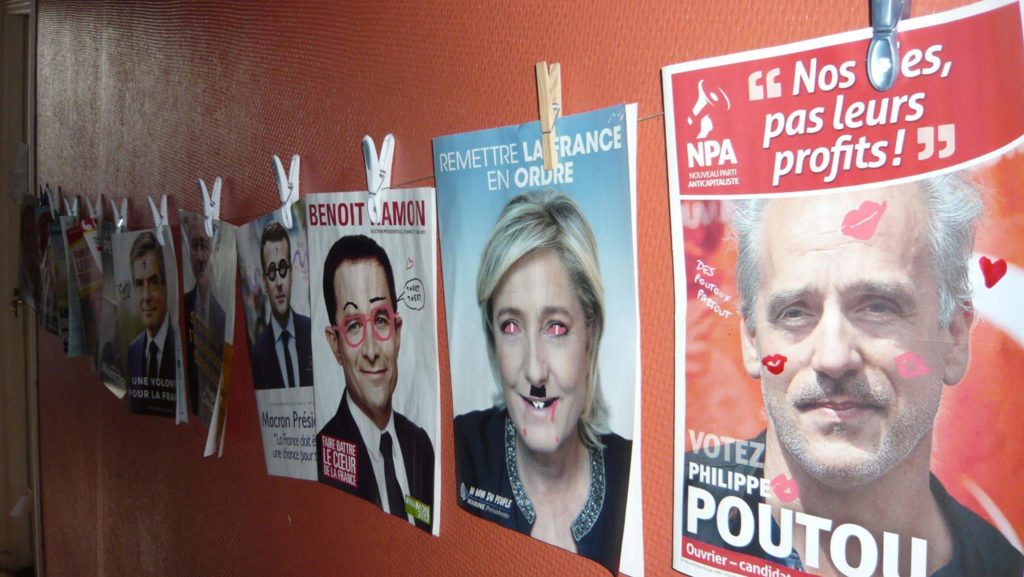
Artistic views on the canditates. (Installation and photo: Sophie Ballu)
Finally, almost the 20% of the French electorate that voted for Jean-Luc Mélanchon, the candidate of the far left movement “France insoumise” (Unbowed France), has been beaten by the stick of blame ever since their candidate refused to endorse Macron. They have even been compared to “communists who contributed to the rise of Nazism in Germany”. This continued even after Mélanchon clearly stated that he will vote and will not vote FN, and after he called for his supporters to decide for themselves. Macron stated that these, notably young people deserved better, without specifying if he was ready to offer them that ‘better’. I naively predict that Mélanchon’s voters are well aware of their responsibility and will bloc the rise of the FN. But nobody can ask of them to glorify Macron as a hero and a savior.
Rare Solutions: An Ungovernable Generation?
The democratic values in Europe are in danger. And the France insoumise voters raised their voice for a different, active and participative democracy. It would be much more fair and beneficial for the national and social unity to call upon them to vote for Macron while keeping the taste of bitterness in their mouth. The bitterness that they will be able to express every single day of his mandate, without their voices being ignored. Because, if something should be learned from the recent developments in Western democracies, it is that the system in which the citizens should bow their heads and keep quiet for the whole term only because they candidate lost the elections by a few percent would just not do anymore. Not for the generation that is politically maturing in this moment.

